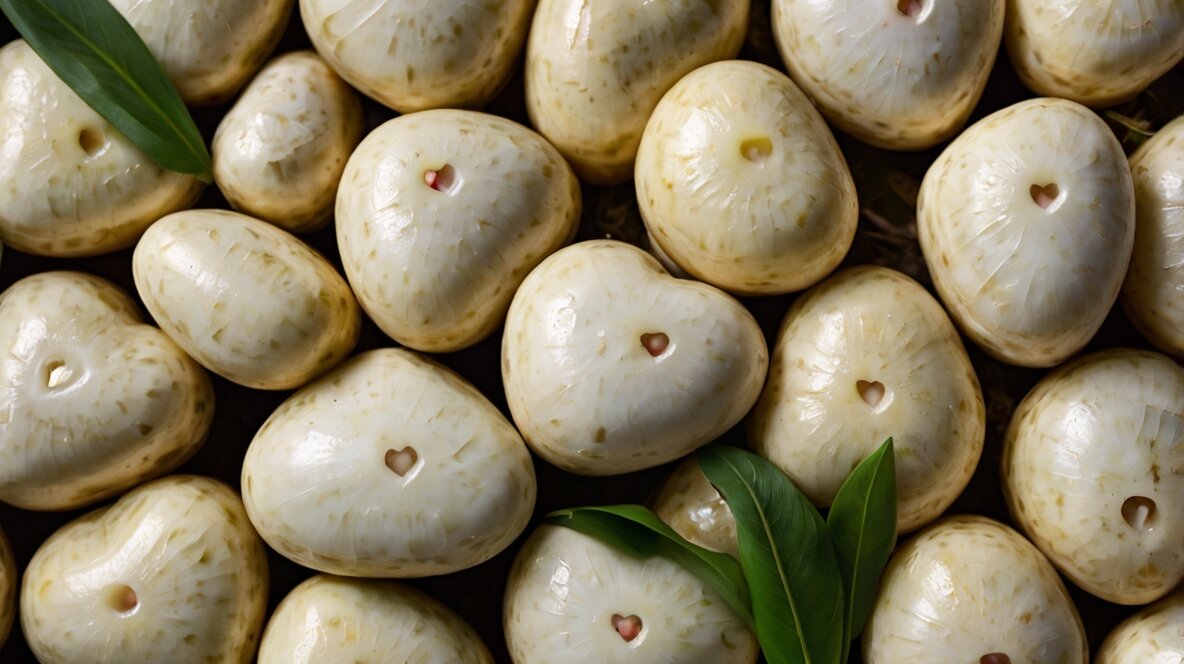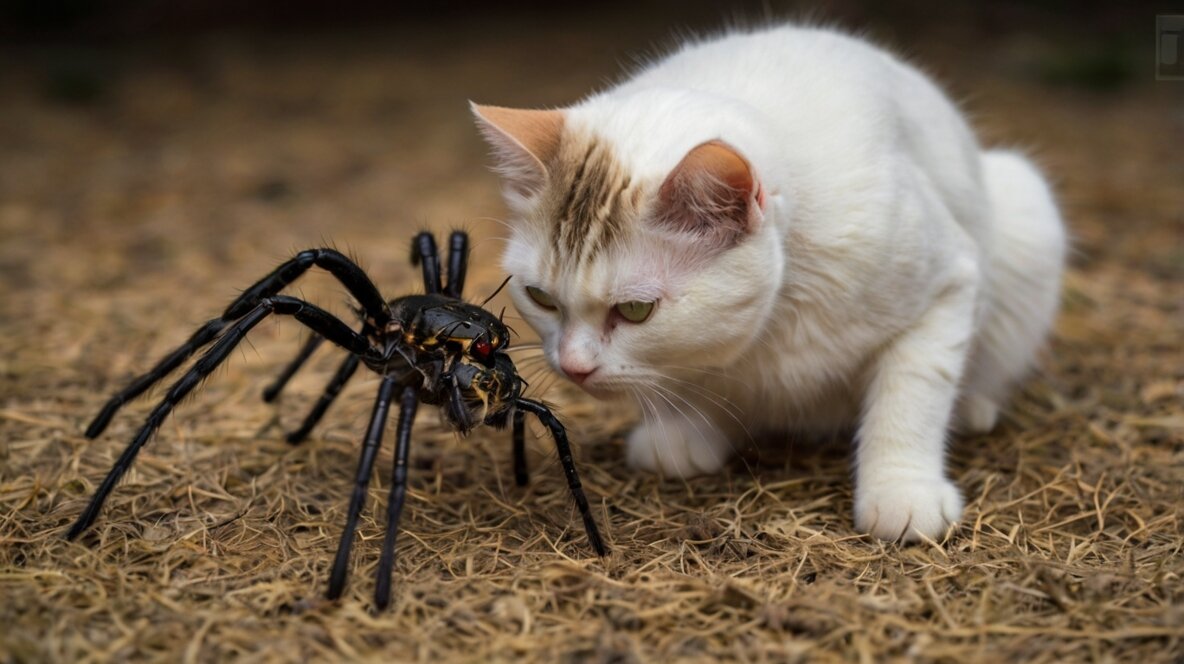Table of Contents
Introduction
Can Cats Eat Raspberries? If you’re a cat owner, you’ve probably found yourself wondering at some point if certain human foods are safe for your furry friend. With their curious nature and sneaky habit of sampling whatever’s left within reach, it’s crucial to know what’s safe and what could potentially harm them. One common question is whether cats eat raspberries. In this complete guide, we’ll dive into everything you need to know about feeding raspberries to your cat, including the benefits, risks, and how to safely incorporate this fruit into their diet.
Understanding a Cat’s Natural Diet
Cats are what’s known as obligate carnivores. This means that their bodies are designed to thrive primarily on meat, unlike humans who are omnivores. Their sharp teeth and short digestive tracts are built for eating and digesting animal protein. A cat’s diet naturally includes little to no plant matter. Cats Eat Raspberries, So, while your cat might be intrigued by the sweet, juicy texture of a raspberry, fruits and vegetables aren’t necessary for their overall nutrition.
Can Cats Eat Raspberries?
The short answer is: Yes, cats eat raspberries in moderation, but it’s not something they need. Raspberries aren’t toxic to cats, which makes them safer than some other fruits. However, just because something is non-toxic doesn’t mean it should become a regular part of your cat’s diet. There are a few considerations to keep in mind before offering this tasty snack.
Nutritional Value of Raspberries
Raspberries are packed with nutrients like vitamins C and K, fiber, and antioxidants. For humans, these are fantastic health boosters. However, cats don’t process nutrients from fruits the same way we do. While they can absorb some of the antioxidants, the fiber in raspberries might not have the same beneficial effects on your cat’s digestive system as it does for humans.
Health Benefits of Raspberries for Cats
Although cats don’t require fruit in their diet, a tiny amount of raspberries can offer minimal benefits. The antioxidants found in raspberries may help to support your cat’s immune system. Additionally, the fiber content could promote better digestion, though this varies from cat to cat.
Cats Eat Raspberries. Still, these benefits are minor, and they don’t outweigh the importance of a well-rounded, protein-heavy diet for cats.

Risks of Feeding Raspberries to Cats
While raspberries are generally safe, there are a few risks. The sugar content in raspberries, though natural, can lead to digestive issues if consumed in large quantities. Cats Eat Raspberries. Cats have a much harder time processing sugar than humans do, and too much can lead to problems like diarrhea or upset stomachs.
Raspberries also pose a choking hazard, especially for kittens or smaller cats. Offering large, whole raspberries could make it difficult for them to chew and swallow properly.
How Many Raspberries Can Cats Safely Eat?
It’s best to limit raspberry consumption to a small portion—one or two raspberries at most, and only occasionally. This minimizes the risk of digestive upset and ensures your cat is getting the majority of their nutrition from high-quality protein sources. Treat raspberries like a rare treat, not a daily indulgence.
How to Properly Serve Raspberries to Your Cat
If you decide to offer raspberries to your cat, preparation is key. Always wash the fruit thoroughly to remove pesticides or chemicals. Consider mashing the raspberries or cutting them into small pieces to make them easier to eat. Offering them plain (without added sugar or syrup) is the safest option.
Signs Your Cat May Not Tolerate Raspberries
Cats Eat Raspberries, which can have sensitive stomachs, and introducing new foods can sometimes trigger a negative reaction. Watch for signs like vomiting, diarrhea, or lethargy after feeding your cat raspberries. Additionally, if your cat seems disinterested or refuses the fruit, don’t force it. Not every cat will have a taste for this sweet snack.
What To Do If Your Cat overeats Raspberries
If your cat accidentally eats too many raspberries, keep an eye on them for signs of distress, like vomiting or diarrhea. If these symptoms persist, or if your cat shows signs of discomfort, it’s best to consult a veterinarian immediately. Cats Eat Raspberries. Overeating raspberries isn’t usually dangerous, but it’s always better to err on the side of caution.
Raspberries vs. Other Fruits: Which Are Safer?
When it comes to fruits, not all are created equal for cats. Raspberries are generally safe in moderation, but fruits like grapes, cherries, and citrus fruits are toxic to cats and should be avoided entirely. Safer alternatives include blueberries and strawberries, which can be offered occasionally just like raspberries.
Alternatives to Raspberries for Cats
If you’re looking for healthy treats for your cat, consider alternatives that are easier on their digestion. Cooked meats, specially formulated cat treats, or even a small bite of cheese can provide excitement without the risks that come with fruit. Always prioritize treats that are specifically made for cats.
The Importance of a Balanced Diet for Cats
Your cat’s diet should primarily consist of high-quality cat food designed to meet their nutritional needs. Raspberries and other fruits should never replace their primary meals. While treats can be fun for your cat, they should only make up a tiny portion of their overall diet to avoid unbalancing their nutrition.
Should Kittens Eat Raspberries?
Kittens have even more sensitive digestive systems than adult cats. It’s best to avoid giving raspberries or any fruit to kittens until they are older and their stomachs can handle small amounts of treats. Stick to a diet designed for their growth and development.
Consulting Your Vet About Feeding Your Cat Raspberries
Before you introduce any new food into your cat’s diet, it’s always a good idea to check with your veterinarian. They can offer personalized advice based on your cat’s age, health, and dietary needs, ensuring that any new treats fit well within their overall nutrition plan.
Conclusion
So, can cats eat raspberries? Yes, but only in moderation. While raspberries offer some minor benefits, they aren’t a necessary part of a cat’s diet, and overfeeding can lead to digestive problems. Stick to one or two raspberries as an occasional treat, and always prioritize your cat’s natural carnivorous diet. When in doubt, consult with your vet to ensure that your feline friend stays happy and healthy.
FAQs
- Can raspberries cause allergies in cats?
While rare, some cats may have food sensitivities. Watch for any signs of itching or swelling after eating raspberries. - Are raspberry-flavored products safe for cats?
No, processed raspberry-flavored products often contain sugar, preservatives, and artificial ingredients that can harm cats. - Can cats eat dried raspberries?
Dried raspberries have a higher concentration of sugar and should be avoided. - How often should I feed my cat raspberries?
Once in a while is fine, but no more than once a week, and only in small amounts. - What fruits should I avoid giving my cat?
Avoid toxic fruits like grapes, cherries, and citrus fruits. Always research before offering new foods.



